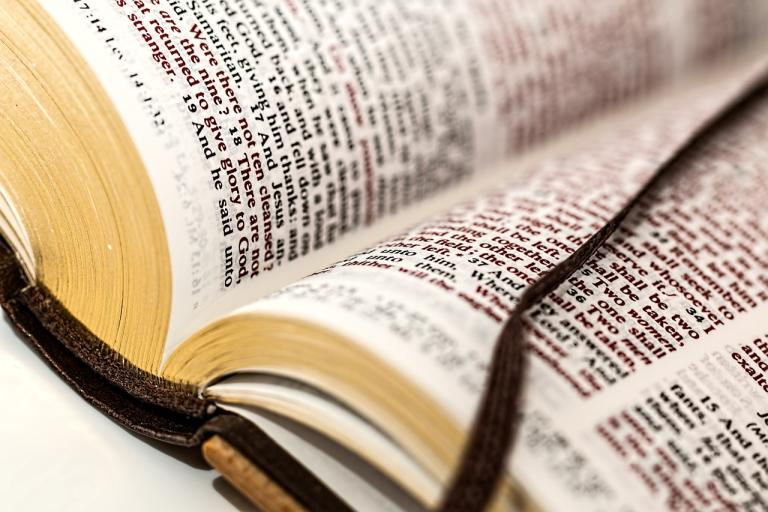I recently read an article by my friend Keith Giles that got me thinking (I know, dangerous, right?). It was about how we should explore the idea of having a fresh canon of Scripture. Of course, he was being a bit tongue in cheek, but I understood his point. Marcion had his own set. Origen had his own set. Athanasius had his own set. So why can’t we?
However, as Keith points out:
“I actually think creating any sort of ‘Canon of Scripture’ is a bad idea. Because once you make any list of ‘approved’ writings, you also limit the Spirit of God to those – and only those – particular writings.”
Without a doubt, most Christians would scoff at such a notion, but I think he’s entirely correct. I mean, who gets to decide what is and what is not “canon?” And why? Historically, there have been councils, but even these haven’t sorted things out entirely, especially when it comes to the Hebrew Scriptures. For the most part, Christian denominations agree on the 27 New Testament books, but that’s as far as things go. Protestants add 39 from the Old Testament for a total of 66 books. Catholics add 46 for a total of 73. The Orthodox add 52 for a total of 79. And the Coptic Christians are out there doing their own thing by including 81.
The point being: Biblical canon is up for debate and open to interpretation.
Digging deeper: Even if we agreed on what the appropriate canon is – that is, God herself descended to earth to give us an official list – there isn’t much of a point because of the nature of the writings that would be included. In other words, the books that would inevitably be among the approved list are, by and large, a debate about what God is like and how we relate to the divine in the here and now.
To any thinking person devoid of blatant indoctrination, the Bible – no matter which canon we choose – is a wild, whacky, often contradictory set of writings that wrestle with everything from the nature of God to why bad shit happens to good people to what happens after we take our last breath. It’s conclusion to these questions? Depends on what you’re reading. If you’re reading the book of Job, for instance, and looking for an answer to the problem of evil, you’ll no doubt conclude something different than if you’re reading the Suffering Servant poems from Isaiah 52-53. And if you’re wondering how God goes about blessing and cursing others, then Deuteronomy 28 is going to tell you something different than Matthew 5.
I could go on and on nearly ad infinitum.
This is one reason why, personally, I don’t give the Bible the authority it doesn’t deserve. That’s not to say I don’t enjoy the Bible, because I do; it just means my epistemological starting point isn’t “what the Bible clearly says . . . brother.” My starting place is my direct experience with the Universe itself. When I go to the Bible, then, I get to see things with fresher eyes. I don’t have to make the texts “fit” with one another. I don’t have to give it the unifying voice it doesn’t have. I can let the contradictions and what I would consider poor theologies be what they are: The opinions of one man or a group of men at the time of writing, editing, and redacting the texts.
So . . .
If the theology of Deuteronomy 28 is contradictory to that of Matthew 5, I can be okay with that. Jesus often tinkered with Scripture.
If Galatians 3:13 fundamentally changes how we view the God-ordained cursing of Deuteronomy 21:23, then so be it. Paul had an interestingly creative hermeneutic.
If 2 Kings 9 praises what goes down at Jezreel but later, Hosea disagrees, I can live with that. The prophets didn’t always agree with one another.
To my mind, what matters most is not what the text says, but how we live our lives. We can see all the fruit of the Spirit in our lives even if we don’t own a Bible. We can be quite Christlike and never open the so-called “word of God.” Again, that doesn’t mean the Bible isn’t at all important. It just means it may not be important for everyone. In fact, given how much harm has been caused by those who wield it like a sword, it’s painfully obvious how much care should be taken when approaching it.
To this end, as Keith says in his article, God is still “speaking” today. God’s speaking to those who read their Bible daily and to those who never have nor ever will open a Bible. And often, the ones who are listening are the latter. Hopefully that changes to include those who do read their Bibles daily.
If you wanna get to know me better, please follow me on social media. I’m pretty active on all platforms:
Also, if you’ve been digging my work on here, and want to see me be able to continue writing as close to full-time as humanly possible, please take a look at my Patreon page at www.patreon.com/mjdistefano. Even $1 a month helps bigly!!!















